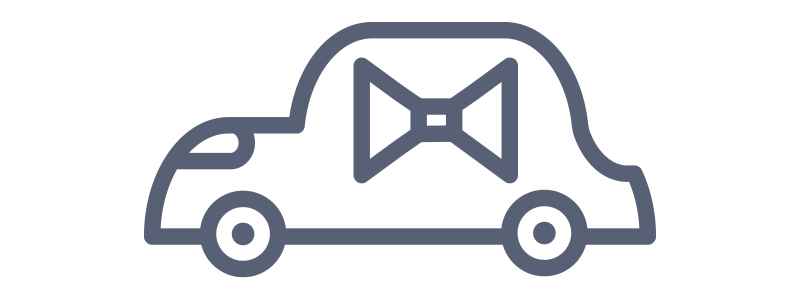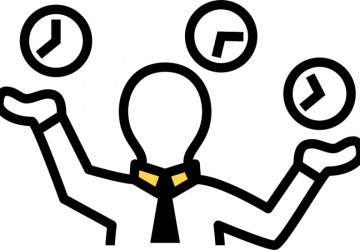
6 Dumb 401(k) moves
1. Cashing out when changing jobs
Probably the worst thing you can do with a 401(k) is to take a distribution from it when you change jobs. There are negative tax consequences, you undo lots of good (and easy) work saving for retirement, and you probably don’t need the money anyway.
The major negative with taking a distribution from your 401(k) when you change jobs is the tax consequences. When you take a distribution before retirement (with some exceptions which are rigid in their requirements), you are immediately hit with a 10% penalty by the IRS. In addition, the distribution now becomes ordinary income, meaning you’re then taxed on the distribution.
The second reason not to take an early 401(k) distribution is because you’re undoing a lot of good work you’ve done for your retirement. When you had money taken out of your paycheck and put into a 401(k), you’ve already done the hard part. Any pain you may have felt in having a smaller paycheck has already passed. If you take a distribution, you’ve just undid all your work.
Finally, you probably don’t need the money anyway. Unless you’ve
been involuntarily separated from your company, you either have another
job lined up or plan on something else like going back to school. In
either case, you most likely don’t need a lump sum of money right now.
Can we all make use of a big deposit into our checking account? Of
course, but you weren’t planning on it, so its absence won’t hurt.
2. Leaving your contributions in the default option.
Many people think their work is done when they elect to have money put into a 401(k). They give no thought to a very important next step - asset allocation. Your choices may be precious few or confusingly many, but leaving the money in a default money market account (or worse, company stock) is akin to giving away money. By doing so, you’re letting inflation eat up your hard earned money. Please don’t leave your contributions in a low-yield investment, but do be cognizant of your time horizon and invest appropriately.
3. Taking a loan against it.
Taking a loan against your 401(k) is touted as a good idea if you need money. It’s not - it’s dumb. According to the Employee Benefit Research Institute, 1 in 5 401(k) participants has an outstanding loan. People like to say that having one is a good idea because, “you’re paying the interest to yourself.” That’s misleading and here’s why. When you take a 401(k) loan, you pay interest but that interest, along with the principle, goes back into your 401(k) account. The problem is that while your loan is outstanding, your money isn’t working for you. It’s not invested in the markets, so you’re likely losing money.
The other reason taking a 401(k) loan is dumb is that if you leave your job for whatever reason, you typically have to pay that money back immediately. If you needed a loan, you didn’t have the money to begin with, so you’ll likely have to take the loan amount as a distribution with all the nasty consequences that go with it.
4. Not periodically rebalancing.
One of the principles of investment is periodic rebalancing of your portfolio. To rebalance is to sell winners and buy losers so that you return to your original asset allocation. If you don’t rebalance your 401(k), your asset allocation gets out of whack and your not investing as you intended. You don’t have to rebalance constantly, but once or twice a year is probably adequate.
5. Investing in company stock.
Another dumb 401(k) move is investing your contribution in company stock. If you work for a public company, the employer match you get is almost certainly invested in company stock so you have exposure there. Furthermore, you obviously work for that company, so your income already relies on its welfare. Further increasing your exposure by voluntarily buying company stock in your 401(k) is foolish.
6. Checking it obsessively.
Do yourself a favor and don’t check your 401(k) daily, or weekly for that matter. The purpose of your 401(k) is to invest for retirement, which is probably years away. There’s simply no need to know your balance on a constant basis. Research shows that people who check their investments very often trade often and people who trade often have lower returns than those who don’t.
-
 07/25/2024 4
07/25/2024 4 -
 07/23/2024 8
07/23/2024 8 -
 05/31/2024 100
05/31/2024 100 -
 09/05/2022 627
09/05/2022 627 -
 09/05/2022 665
09/05/2022 665 -
 09/05/2022 787
09/05/2022 787 -
 09/05/2022 654
09/05/2022 654 -
 09/05/2022 634
09/05/2022 634
-
 12/09/2016 5719
12/09/2016 5719 -
 03/22/2018 2867
03/22/2018 2867 -
 10/10/2016 2851
10/10/2016 2851 -
 01/09/2017 2765
01/09/2017 2765 -
 01/13/2017 2380
01/13/2017 2380 -
 01/13/2017 2378
01/13/2017 2378 -
 01/14/2017 2211
01/14/2017 2211 -
 11/01/2016 2177
11/01/2016 2177
FEATURED NEWS

Personal Finance

Personal Finance

Managed Funds

Insurance

Business





LEAVE A COMMENT